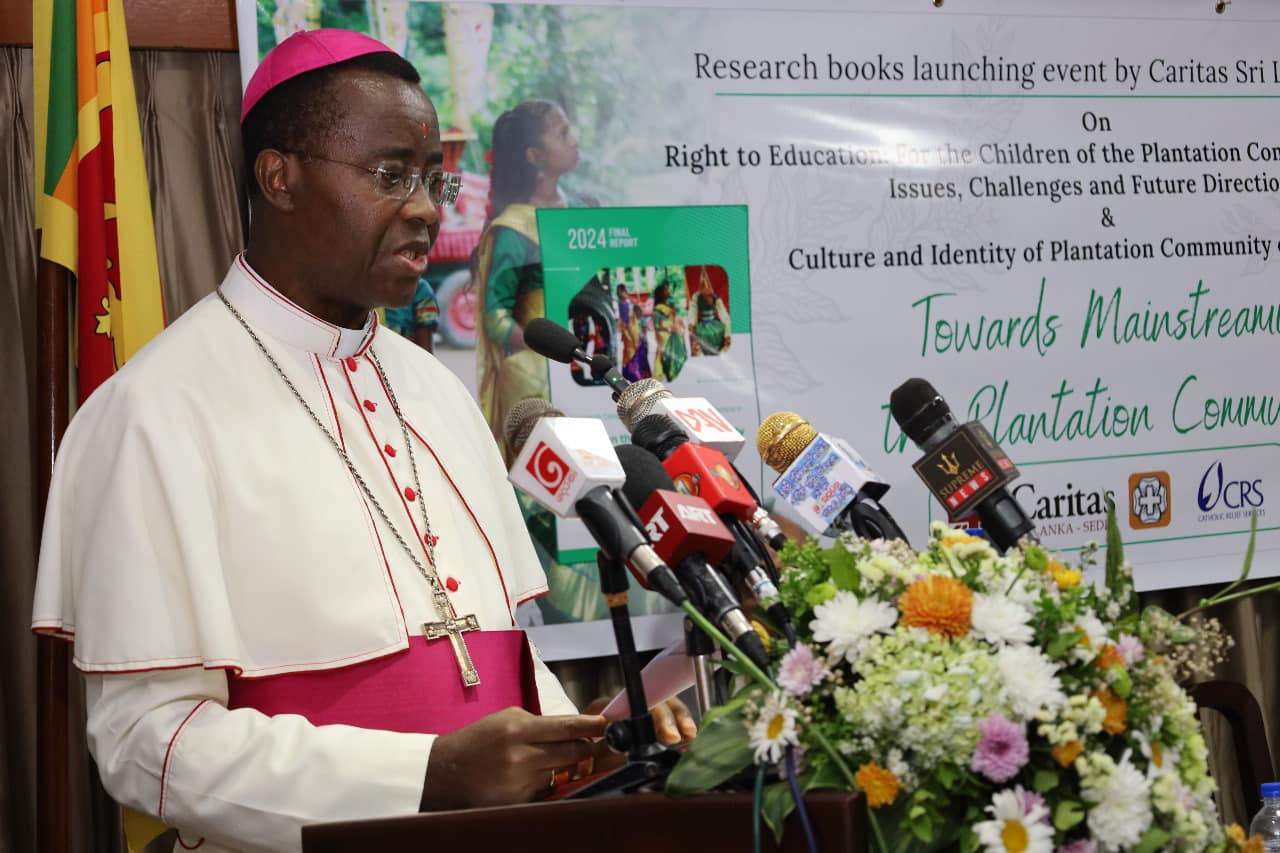Caritas Sri Lanka: more education means greater ‘equity and justice’ for plantation communities
The charity released two reports that highlight the shortcomings of the school system and cultural and identity issues in the most marginalised communities. Illiteracy and school dropout rates were found to be much higher than those in other rural areas of the country. For Apostolic Nuncio Brian Udaigwe, “an inclusive approach” is needed.
Colombo (AsiaNews) – Caritas Sri Lanka (SEDEC) recently released two reports based on research aimed at transforming the life of Sri Lanka’s plantation community.
Titled “Right to Education for Plantation Children: Issues, Challenges, and Future Directions" and "Culture and Identity of the Plantation Community in Sri Lanka”, these studies are more than just academic work: they are tools for advocacy, equity, and social justice.
“This research sheds light on the stark realities endured by workers and children in this sector. The future of this community relies not only on policy changes but on empathy-driven action," said Archbishop Brian Udaigwe, apostolic nuncio to Sri Lanka.
“The promises made by the government to deliver quality education to all children need to be followed through, considering that education is a fundamental right and not a privilege enjoyed by a few,” he added. “Besides other issues, such as the root causes of poverty in the plantation sector of Sri Lanka and the need for educational equity and justice need to be addressed.”
The studies were presented on 3 October in the presence of Bishop Harold Anthony Perera of Kurunegala, president of the Catholic Bishops' Conference of Sri Lanka (CBCSL) and Bishop Valence Mendis of Kandy, together with Supreme Court Justice S. Thurairaja, and W.A.L. Wickramarachchi, director at the Ministry of the Environment, Plantations, Wildlife, Forest Resources, Water Supply and Community Infrastructure.
The research found that Sri Lanka's education system needs urgent reforms to address emerging issues in the plantation community. It indicates that literacy in the plantation community still lags behind that of the non-plantation rural population.
An important observation concerns the literacy rate among women, which lags behind non-plantation rural women by 16 per cent, while the gap among males is only 6 per cent.
The studies also note a high school dropout rate in this community, with an average of 8.4 per cent in the fifth year, compared to the national average of 1.4 per cent, according to data from the Ministry of Education.
In Nuwara Eliya district, the rate of male transition from primary to secondary level is lower than in other districts, and many boys are forced to enter the labour force.
In addition, children from plantation communities are less likely to complete primary and secondary education than their peers in cities.
“The findings from the research reveal how poverty, deprivation, and lack of facilities continue to hinder educational access for children in the plantation sector,” Nuncio Udaigwe explained.
Certain educational barriers continue to affect not only individuals, but entire communities, something that has been going on for generations.
“This requires an inclusive and equitable approach to education, ensuring that every child, regardless of their background, has access to quality learning opportunities." The prelate added.
Emphasising the need for a deeper "sense of empathy" in addressing challenges, “we need to embrace empathy, to truly understand and share in the experiences of these communities.”
The nuncio also stressed that the government, the Church, and other parties must work together to create an educational environment that is just and accessible to all.
The studies also offer recommendations, which would see the government implement inclusive development policies and advocacy programmes, fund cultural preservation, provide legal recognition and protection, as well as promote cultural and ecological tourism programmes, cultural documentation and archiving, not to mention dialogue and intercommunity networks.
08/04/2024 15:00
19/10/2021 12:53
15/06/2021 17:04







.png)










